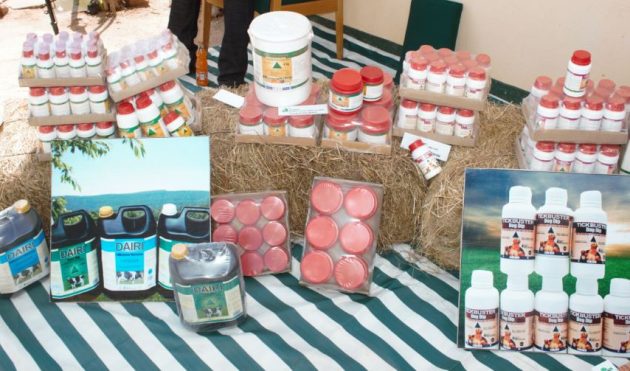Chemplex new animal health products to chop imports
Chemplex Corporation, a subsidiary of the State-owned Industrial Development Corporation of Zimbabwe (IDCZ), has developed new animal healthcare products, injecting impetus into the country’s thrust of import substitution and value addition.
According to a recent report by the Ministry of Industry and Commerce, Chemplex has added tick grease, cotton pesticides, and grain protectants to the range of its offerings.
Zimbabwe has been importing some of the products and the localisation of production of these commodities will help the country save a significant amount of foreign currency.
“In line with our import substation thrust, we are now witnessing product diversification by local firms, through research and development,” the ministry said in the report.
“Chemplex Corporation, a subsidiary of the Industrial Development Corporation of Zimbabwe which is involved in public and animal health produced the first ever Zimbabwean-made tick grease called Contratrick to preserve our national herd which has declined due to a shortage of dipping chemicals,” the industry and commerce ministry added.
Further, the company is now producing cotton pesticides called Miterbuster and grain protection chemicals.
“The innovation will go a long way in preserving yields and minimising post-harvest losses to the farmers, thus complementing the existing Pfumvudza and the National Enhancement Productive Scheme,” it said.
Chemplex is a well-established group of strategic importance to the Zimbabwean economy as a key supplier to agriculture, municipal water treatment, livestock production, mining, and other sectors.
Founded in 1928 as a wholly owned subsidiary of AECI South Africa, Chemplex was bought by the IDCZ in 1990.
The company has four wholly owned subsidiaries namely ZimPhos, Dorowa Mine, GD Haulage, G&W Industrial Minerals, and two operating divisions namely; Chemplex Marketing, and Chemplex Agro Pharma (CAPH).
Chemplex also owns 50 percent of the Zimbabwe Fertilizer Company and 36 percent of Sable Chemical Industries, making it a key player in the national fertilizer industry.
With a well-diversified product portfolio feeding into key sectors of the Zimbabwean and regional economy, the company is on a growth trajectory buoyed by the recovery of the local economy and anticipated robust regional growth.
Some of the new products, which have been introduced on the local market are cough syrup (Cofsol), water treatment chemicals, Covid-testing equipment and lime for farming
Over the past few years, Zimbabwe has witnessed a massive rebound in industrial growth due to several measures adopted and implemented by the Second Republic.
The report shows the country has made progress in reviving the manufacturing industry and setting it on a growth path.
The report has noted the growth trajectory was driven by the Second Republic’s “people’s centred approach” to boost the production of manufactured goods, productivity and create quality jobs in line with the vision to grow the country into an upper middle-income society by 2030 and the thrust of leaving “no one, no place behind.”
Improving ease of doing business and making access to foreign currency to manufacturers, export development, broad-based economic empowerment initiatives, rural industrialisation, research and innovation and linkages with small to medium enterprises were some of the strategies that helped propelled the industry.
While the manufacturing industry used to be among the leading sectors in the economy, the unconducive environment, which prevailed before the coming of the Second Republic, was dominated by severe economic instability.
Furthermore, the high cost of doing business, foreign currency shortages, and limited foreign direct investment saw the country experiencing factory closures, job losses, and de-industrialisation.-heald









